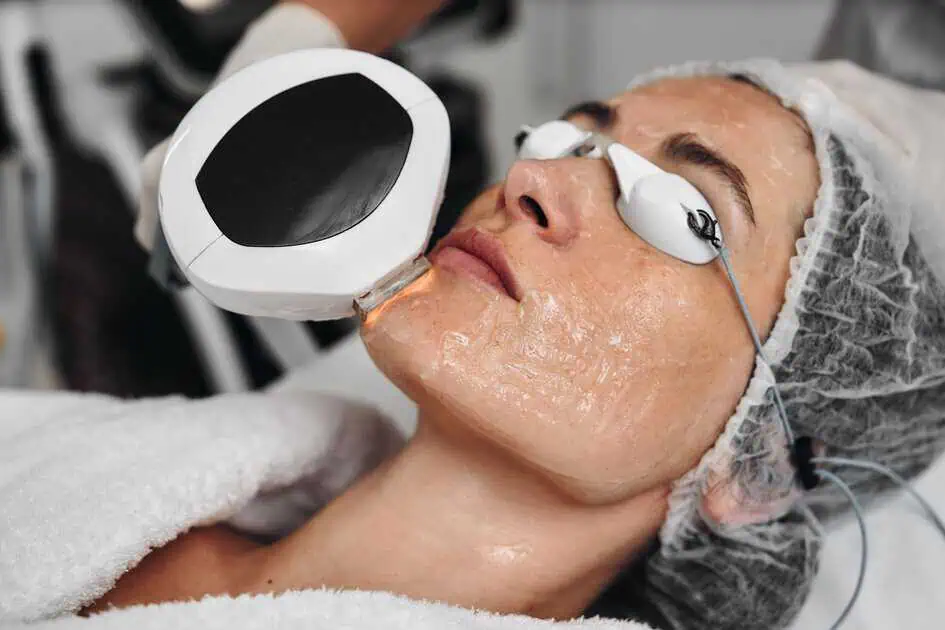Introduction
Did you know that approximately 80% of visible signs of aging, such as wrinkles, fine lines, and hyperpigmentation, are caused by ultraviolet (UV) radiation from the sun? This is why experts strongly recommend using sunscreen daily—it’s advice backed by solid evidence!
Incorporating SPF into your daily routine is a vital step in skin care. A small, quick action can make a significant difference! In this blog, we will be uncovering what SPF is, why it’s important, the types of sunscreens, and choosing the right SPF for you!
What is SPF?
SPF, or Sun Protection Factor, is a measure of how well a sunscreen can protect the skin from ultraviolet (UV) radiation, specifically UVB rays, which are the primary cause of sunburn and contribute to skin cancer. UVA rays penetrate deeper into the skin, contributing to premature aging and also playing a role in skin cancer. Broad-spectrum sunscreens protect against both UVA and UVB rays.
The number associated with SPF (e.g., SPF 15, SPF 30, SPF 50) indicates the level of protection. It represents how much longer you can stay in the sun without getting sunburned compared to unprotected skin. For example, if you use SPF 30, you can theoretically stay in the sun 30 times longer than you could without protection.
Why is SPF Important?
Prevents Sunburn: Sunburn is not only painful but also a sign of skin damage. SPF helps prevent this immediate damage.
Reduces Risk of Skin Cancer: By protecting against UV radiation, SPF reduces the risk of skin cancer, including melanoma, the most serious type.
Prevents Premature Aging: Regular use of SPF helps prevent photoaging, which includes wrinkles, fine lines, and dark spots caused by sun exposure.
Maintains Even Skin Tone: Protecting your skin from UV damage helps prevent hyperpigmentation and keeps your skin tone more even.
Types of Sunscreens
Chemical vs. Physical Sunscreens: Chemical sunscreens contain organic (carbon-based) compounds that absorb UV radiation. These compounds, such as avobenzone, octinoxate, and oxybenzone, convert UV rays into heat, which is then released from the skin. Chemical sunscreens need to be applied 15-30 minutes before sun exposure to allow time for the skin to absorb the sunscreen and for it to become effective. The texture of a chemical sunscreen tends to be lighter and less visible on the skin, making them more cosmetically appealing. At Sunday Skin, we have 3 chemical sunscreen options– Epionce Daily Shield Tinted SPF 50, Revision Intellishade Original, and Revision Intellishade Clear.
Physical, otherwise known as mineral, sunscreens contain inorganic compounds like zinc oxide and titanium dioxide. These minerals sit on top of the skin and act as a physical barrier, reflecting and scattering UV radiation. Physical sunscreens work immediately upon application, providing instant protection. These sunscreens may leave a white cast on the skin, though newer formulations are more refined to minimize this effect! At Sunday Skin, we have two great options for mineral sunscreens Alastin Hydratint and Revision Intellishade Truphysical. Neither leave a cast on the skin, and are perfect for everyday use!
Choosing the Right SPF
Factors to Consider: When choosing the right SPF for you, consider your skin type. If you have fair skin that burns easily and rarely tans, opt for a higher SPF (30 or above). If you have a medium skin tone that sometimes burns and sometimes tans, SPF 30 is generally sufficient. While darker skin has more natural protection, it can still get sun damage. Use at least SPF 15 to 30. At Sunday Skin skin we recommend 30+ or higher no matter your skin type for ultimate daily protection. All SPF’s we carry at Sunday Skin are 35+ SPF or higher.
Tinted vs. Clear: Everyone has their own preference when it comes to choosing a tinted or clear daily SPF. Both have their advantages! Tinted SPFs give a light coverage and can oftentimes replace a foundation for everyday use. Clear SPFs can be put on under any makeup product and are great for reapplication throughout the day! We love Revision Intellishade Clear for an everyday clear option.
How to Use SPF Effectively
Apply Generously: Use enough sunscreen to cover all exposed skin. Most adults need about one ounce (a shot glass full) to cover their entire body. For the face and neck daily a quarter size is great!
Reapply Often: Sunscreen should be reapplied every two hours, or more often if you’re swimming or sweating.
Use Daily: Incorporate SPF into your daily skincare routine, even on cloudy days or when indoors, as UV rays can penetrate through windows.
Conclusion
In conclusion, understanding SPF and sun protection is essential for maintaining healthy and radiant skin. By recognizing the importance of SPF in shielding against harmful UV radiation, you empower yourself to make informed decisions about sunscreen selection and application. We have five great different SPF options at Sunday Skin. Use this guide to help you pick what sunscreen is best for you out of our five! Remember, SPF is not just about preventing sunburn—it’s about safeguarding against skin cancer, premature aging, and maintaining an even skin tone. Whether you’re spending a day at the beach or running errands around town, incorporating SPF into your daily skincare routine is a simple yet powerful way to protect your skin and preserve its youthful appearance. So, make SPF a non-negotiable step in your skincare regimen, and embrace the sun safely to enjoy the beauty of life with confidence and vitality.

